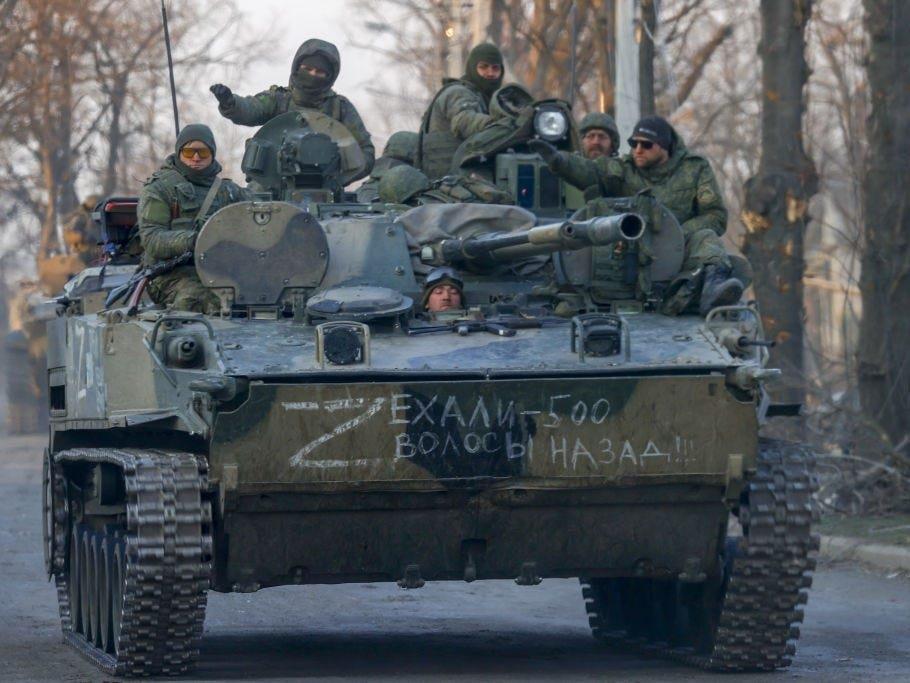Africa-Press – South-Africa. Although Russia’s invasion of Ukraine has given democracy a geopolitical importance that it has not had in many decades, democracy is in a moment of scarcity, not plenty, writes Alex Hudson.
In April 1953, six weeks after the death of Soviet leader Joseph Stalin, eight years after the defeat of Nazi Germany, and three years before Soviet tanks crushed the Hungarian Revolution, US President Dwight Eisenhower delivered his “Chance for Peace” speech.
Eisenhower began by recalling the way that the Allied victory over the Nazi regime had given people hope for a future that was defined by peace and freedom (not unlike the way many people felt after the fall of the Berlin Wall). By 1953, in Eisenhower’s view, that bright hope was all but gone. He argued that:
One can imagine speaking almost these same lines a few years hence, merely replacing “the amassing of Soviet power” with “the Russian invasion of Ukraine.” One critical difference is that the threat of Soviet power was at that time unrealised; the threat posed by Russian military aggression is now brutally manifested on Ukraine.
Yet, the danger of a policy response that is short-term and blinkered is as real now as it was then. In the days after the Russian invasion, spending priorities (in Europe in particular) quickly pivoted to short-term military concerns. But we need public policy that reflects a broader view of what the world could be in the year ahead.
OPINION: Katja Keul and Niels Annen – Russia is using hunger as instrument of war
For Eisenhower, the tradeoff involved increased defence spending: “a theft from those who hunger and are not fed, those who are cold and are not clothed.”
We face the same choices again today. But while Eisenhower spoke at a moment of unprecedented economic growth, we presently find ourselves confronting a lingering pandemic, rising inflation, rising economic inequality, and perhaps the longest period of democratic erosion in human history.
So, is this the moment to undo the post Berlin Wall “peace dividend” and redirect spending to military ends?
The coming spending spree
In the first month after Russia invaded Ukraine, several European countries announced significant increases in defence spending. Germany said it would raise defence spending to two percent of its GDP, directing 100 billion EUR to defence in 2022. Other NATO member states made similar pledges, as Norway announced an immediate increase of 340 million USD, Spain committed to reaching two percent of its GDP, Romania two and a half percent, and Poland three percent. The broader implications are becoming clear. Germany recently presented a draft budget in which spending on foreign aid would be dramatically reduced to make room for the increases in the defence budget. No doubt other countries will have to make similar difficult decisions. With supplies of fertiliser falling on the global market, and possible problems with the Ukrainian wheat crop on which many developing countries depend, this is certainly not the moment to be cutting foreign aid.
The price of re-arming
The ambition of increasing defence spending may be to protect democracy. But democracy has been facing its own domestic threats even before the Ukraine war. Large groups of voters have felt “left behind” as new industries have emerged, the economic centres of the country have moved to different regions, and more liberal and cosmopolitan values have become culturally dominant. In frustration, many have turned to illiberal political parties and demagogic leaders. Governments will need to spend money on these economic and social problems that have undermined confidence in democracy.
ANALYSIS: Using lies and disinformation, Putin has been pushing for a Ukraine invasion for 14 year
Although Russia’s invasion of Ukraine has given democracy a geopolitical importance that it has not had in many decades, democracy is in a moment of scarcity, not plenty. The apparent unity of democratic governments is important. But rather than directing our resources into building a literal arsenal of democracy, we need to build a figurative one. Action to counter disinformation, enhance the oversight capacity of legislatures, and guarantee civil liberties (notably freedom of expression) is necessary to reverse democratic erosion.
If policy-making attention and financial resources are redirected to military spending, we may find ourselves in a world with well-armed “democracies” in name only. We must not allow an aggressive (but no doubt weakened) Russia to distract us from addressing the non-violent threats that are more likely to lead to autocratic outcomes. Ukraine absolutely needs the kinds of military assistance that it is now receiving. But what is needed in the other “free countries” is careful attention to the economic and social causes of democratic erosion, and rebuilding institutions to reverse it.
–
Alex Hudson is a Democracy Assessment Specialist at the Stockholm based intergovernmental organisation the International Institute for Democracy and Electoral Assistance (International IDEA). He writes in his personal capacity.
Disclaimer:
News24 encourages freedom of speech and the expression of diverse views. The views of columnists published on News24 are therefore their own and do not necessarily represent the views of News24.
For More News And Analysis About South-Africa Follow Africa-Press






